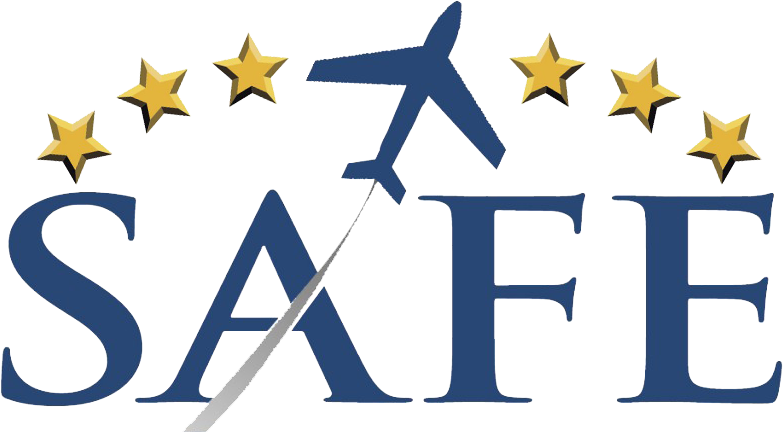SAFE Director John Dorcey on Aviation Advisory Board
As the airline industry braces for a shortage of pilots, Lakeland College announces the establishment of Wisconsin’s only four-year college aviation program.
In a partnership with Frontline Aviation, a flight school with locations at the Sheboygan County Memorial Airport and Green Bay’s Austin Straubel International Airport, Lakeland will offer an aviation minor. The program will prepare students for professional careers in aviation and give them the added benefit of a four-year college degree.
“Research suggests that the airline industry needs more pilots, but they want pilots with four-year college degrees,” said Kathy Rath Marr, chair of Lakeland’s Natural Science division. “Graduates from Lakeland’s program will have the technical skills needed to fly, along with the critical thinking and other academic skills that come with a four-year liberal arts education.”
A recent study by the International Civil Aviation Organization reported that between 2010-2030 airlines around the world will need an average of 49,900 pilots per year, and current training is not keeping pace with that need.
“The pilot population is aging and heading towards retirement, and the economy has resulted in less people learning to fly,” said Bruce Bressler, president of Jet Air Group, Frontline’s parent corporation. “The industry faces a fairly substantial deficit of pilots to work for commercial airlines and other flying careers in the future. This program is for students who are considering aviation as a career or simply as a personal endeavor.”
“Over the next 20 years, the demand for pilots will be as great as it’s ever been in the history of aviation,” said 2009 Lakeland graduate John Dorcey, operations manager at Winnebago County’s Wittman Regional Airport and a flight instructor for 35 years. Dorcey is part of Lakeland’s nine-member aviation advisory board, a talented collection of aviation industry experts that informed Lakeland’s program.
“There is a higher demand for air travel, and people are waiting in longer lines in airports,” said Dorcey, who spent 22 years as an aviation consultant for the Wisconsin Department of Transportation. “The timing for the creation of this program is ideal.”
Lakeland will offer aviation courses beginning in the fall of 2011. Since students must pursue a four-year degree, they can enroll at Lakeland and begin their general studies and major coursework as early as this spring.
Bressler said the four-year degree will provide graduates of the Lakeland program a broad academic foundation that will allow them to explore a variety of aviation careers.
“Aviation is not just flying airplanes, it’s a host of endeavors above and beyond becoming a pilot,” Bressler said. “Aviation students learn about weather, the physics of flying and managing a business that uses aircraft. The coursework they will be taking as part of their major will be invaluable in their development as pilots.”
In considering this new program of study, Lakeland realized that is has two advantages – access to diverse airport facilities and airspaces, such as the Sheboygan County Memorial Airport (SBM) and Austin Straubel International Airport (GRB) in Green Bay, and Wisconsin’s dynamic weather.
Sheboygan County has a long aviation history. The airport, located six miles south of the college, has been a base for flight instruction, air charter, aircraft sales and service and fuel sales since its opening in 1960.
SBM is ranked as one of Wisconsin’s top 10 busiest airports and connects several of the state’s largest manufacturers to global markets. In addition, the airport is home to the Aviation Heritage Center, a hands-on learning facility offering educational and community programs and events, including an aviation museum, library and laboratory.
“This area is blessed with a beautiful facility,” Dorcey said. “The lack of scheduled commercial air traffic allows more time and space for a training environment, but we are a short flight away from busier facilities, such as Green Bay’s Austin Straubel International Airport, that can give pilots experience working with a control tower.”
While you might think Wisconsin’s always-changing weather would be too challenging for a flight school, officials said it makes for an ideal location for flight training.
A contributing factor in the February 2009 regional airliner incident near Buffalo, N.Y. that killed 50 people was the pilots’ lack of experience in icing, a condition that is common for pilots in Wisconsin. The incident prompted the Federal Aviation Administration to require training in actual weather environments.
“We have it all – rain, snow, sleet, fog, high winds, thunderstorms,” Rath Marr said. “Obviously, learning how to make decisions based on the weather is an important factor in learning to be a professional pilot. Our students will be exposed to dynamic weather, which prepares them for the rigors of a professional aviation career.”
Lakeland’s aviation curriculum will mirror an industry shift in flight training that is leading to changes in curriculum and equipment used to teach student pilots.
“For the last 50-60 years, very little had changed in the way we taught people to fly,” Dorcey said. “We’re being forward thinking in the way we will present the ground school and integrating it with the flight portion using a variety of Frontline’s equipment. It will mirror the Student as Practitioner focus of Lakeland’s curriculum.”
Frontline, a division of Jet Air, will provide basic training aircraft to more advanced glass cockpit airplanes to multi-engine aircraft. “We are excited to be partnering with Frontline,” Rath Marr said. “Our students will be well served by this arrangement.”
Lakeland’s aviation minor is 31 credits of coursework, which includes ground school courses at Lakeland’s main Sheboygan County campus, and flight training at the Sheboygan County Memorial Airport.
For more information about Lakeland’s aviation program, including a list of courses and a video about the program, visit http://lakeland.edu/aviation.
